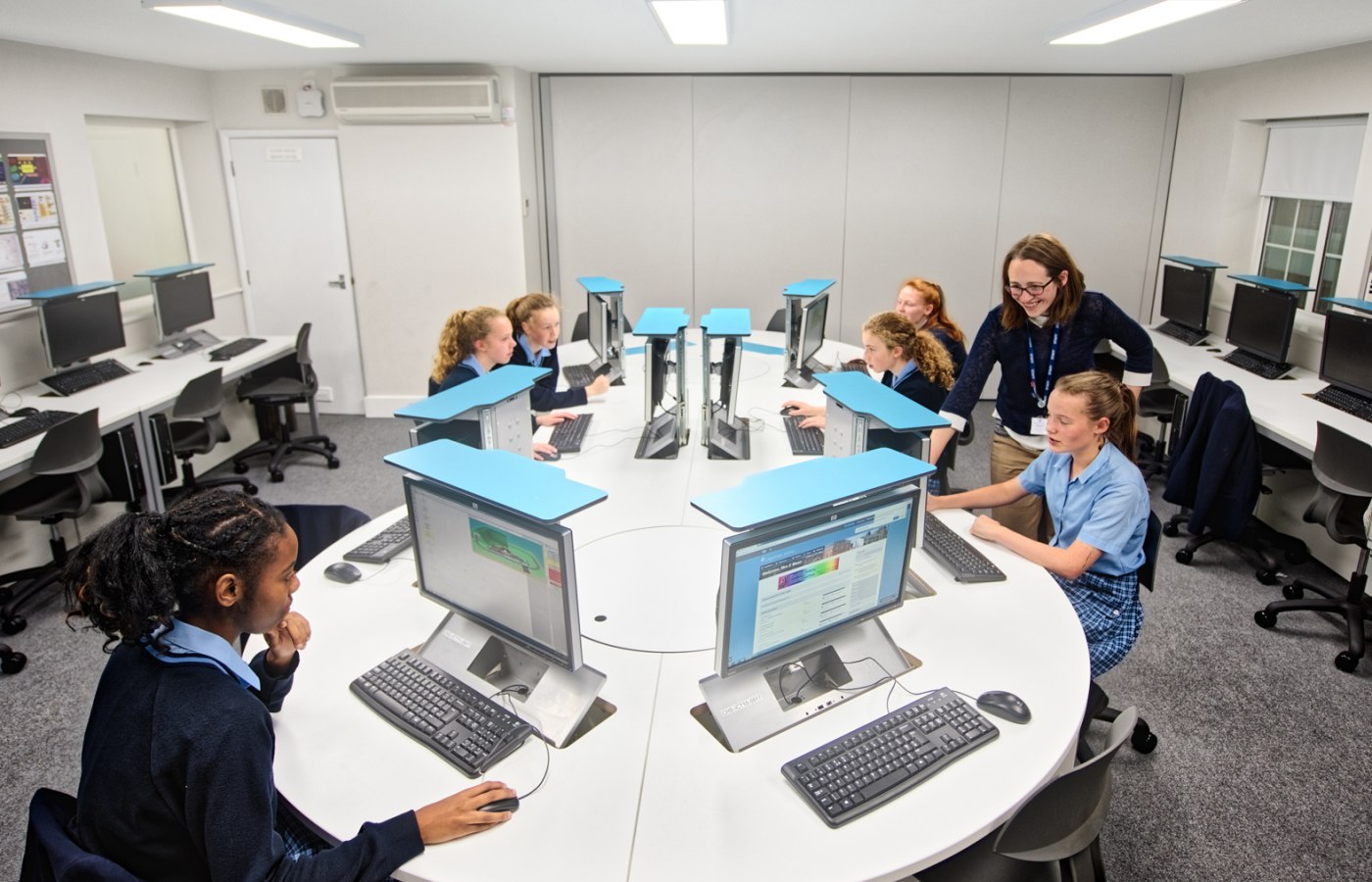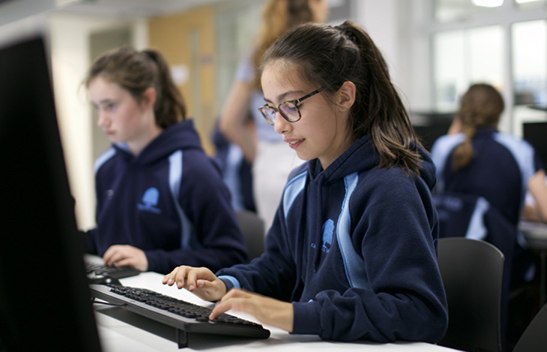Computing
The study of Computing plays a prominent role at Cranford where it forms both a discrete part of the curriculum and an important part of our STEM studies (Science, Technology, Engineering and Mathematics).

an introduction to computing
An overview from our Heads of Department
Computing is the study of how computers and computer systems work and how they are constructed and programmed.
At Cranford all pupils from Year 7 to Year 9 have Computing lessons, taking in everything from designing and creating a company logo using industry standard vector-based illustration software to creating a text-based adventure game in a high-level programming language. By the end of Key Stage 3, pupils can:
- Understand and apply the fundamental principles and concepts of computer science, including abstraction, logic, algorithms and data representation
- Analyse problems in computational terms and have repeated practical experience of writing computer programs in order to solve such problems
- Evaluate and apply information technology analytically, including new or unfamiliar technologies, solve problems, be responsible, competent, confident and creative users of information and communication technology
KS3
In Year 7, pupils create a computer game using a block-based programming language, allowing all students to learn and develop their algorithmic thinking and programming skills. Further projects include creating sound effects with digital audio, designing and creating a company logo using industry standard vector-based illustration software and creating a web page in HTML.
Year 8 pupils start the year by creating a Classroom of the Future in both 2D and 3D CAD software, followed by building a Cranford Planner App using App Inventor. At the end of Year 8, students attempt to answer the question ‘What is a computer?’ by defining a computer system and pulling apart a desktop PC to see what is inside.
KS4
Key Stage 4 introduces pupils to the foundations of Computer Science, including binary and the representation of images on the screen. We also create a text-based adventure game in Python.
Those pupils who choose to take Computer Science GCSE go on to study data representation, computer systems, computer networks, cyber security and the ethical, legal and environmental impacts of digital technology on wider society, as well as completing a programming project.
"I am proud of the breadth of opportunities on offer at Cranford, the generosity of spirit and mutual respect the pupils have for each other and uniquely inclusive nature of all our activities. A Cranford House education really does prepare all our pupils for modern life and an exciting future."
Dr James Raymond – Headmaster


